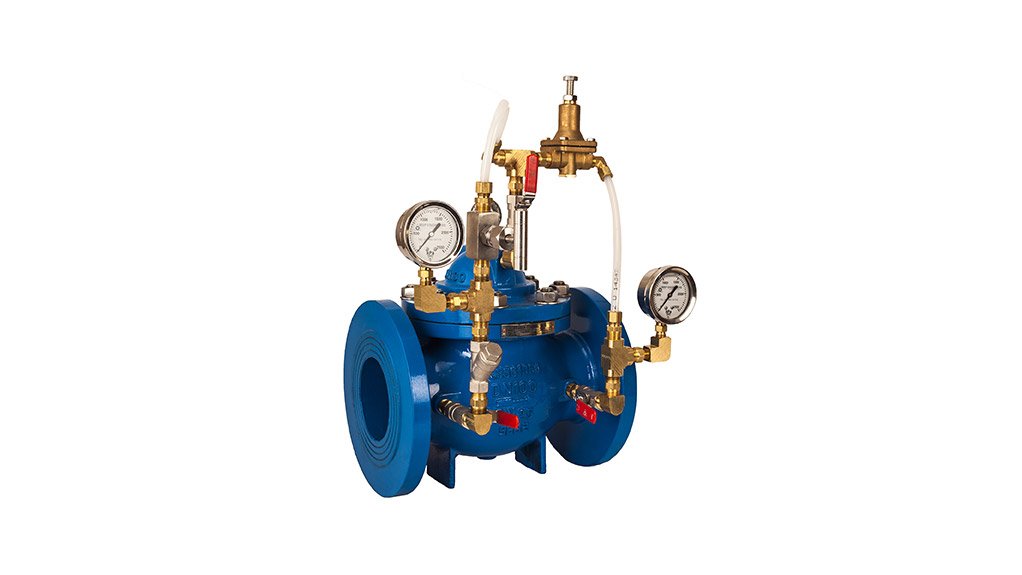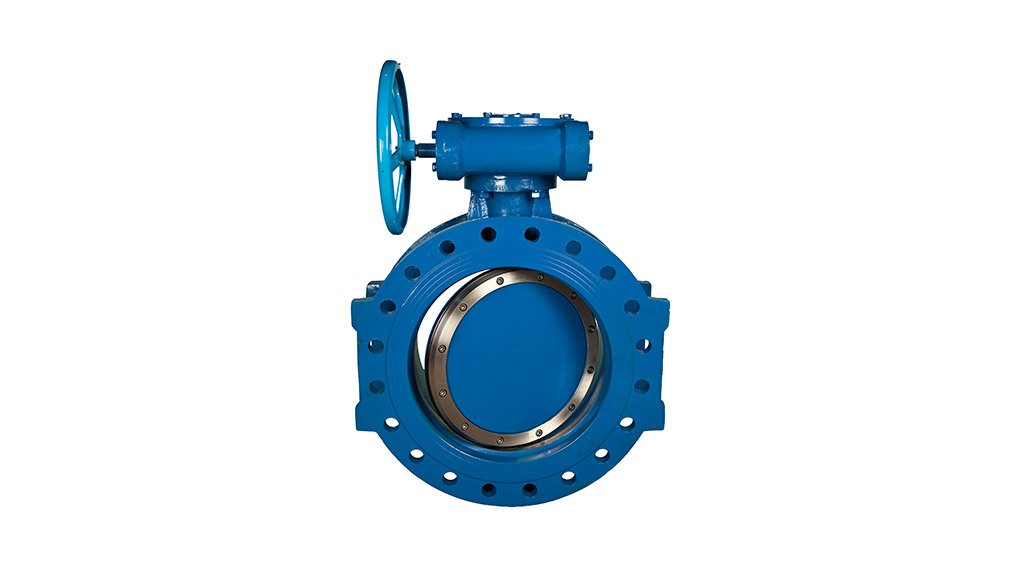Talking openly about selective application of local content requirements for valves
The Association of Valve Importers South Africa (AVISA) is a voluntary association of valve importers whose mission is to ensure that its members are treated in a fair and equitable manner by national, provincial or local spheres of government.
AVISA supports local manufacturing in South Africa and applauds those who invest in local manufacture and innovate.
However, the association is fiercely against the selective application of the legislation on the local production and content in the supply of valves, gazetted on June 8, 2011, and the subsequent revisions thereof, by those members of the Valve and Actuator Manufacturers Cluster of South Africa (Vamcosa) and others, who at times, blatantly manipulate loopholes in the legislation to make exorbitant profits at the expense of tax payers. This manipulation is in the selective interpretation of the 70% local content requirement.
AVISA believes that the constitution should not be selectively applied by any supplier irrespective of what goods or services are provided to an organ of State.
Section 217 of the constitution says: “When an organ of State in the national, provincial or local sphere of government, or any other institution identified in national legislation, contracts for goods or services, it must do so in accordance with a system which is fair, equitable, transparent, competitive and cost effective.”
AVISA is of the opinion that, in view of rampant over expenditure and blatant theft of tax payers funds by State-owned enterprises (SOEs) / government departments, the time has now come that “we do our part to ensure that fast-dwindling State resources are spent in a cost-effective manner”.
AVISA appreciates that there is a problem of economies of scale and low productivity in South Africa that contribute to the high cost of local production, but does not believe that this justifies the instances that it is aware of, where the price of a “locally manufactured” valve was 10 times higher than the industry standard. There are more examples on the same project.
Evidence of Wasteful Expenditure
AVISA has evidence that the valves supplied by a company, which was awarded a contract to supply locally manufactured valves, were, in fact, fully imported.
In one documented instance, the Department of Trade and Industry (DTI) consulted the manufacturer on an application received from a contractor and was guided by the evaluation of a company with an obvious vested interest. “So much for the DTI supplying reference price lists. ‘The DTI will be in a position to provide price references for the different products that have been designated for local production and content’, according to Clause 5.2.2 (b) of the legislation.”
AVISA has a vested interest in importing but is convinced that, collectively, its members stock huge back-up stock that is supplied into an increasingly competitive local market at extremely competitive prices, thus, ensuring by default, some may say, the supply of valves and actuators fully in the spirit of Section 217.
AVISA employs substantially more people than Vamcosa (and other local manufacturers) members and is firmly of the opinion that its members have huge technical skills surpassing that of the vast majority of Vamcosa’s members.
AVISA members remain competitive, despite the weak exchange rate, import duties and the cost of and, in most cases, payment up front for goods imported. The loss of import duties alone to the fiscus is substantial. Therefore, the exorbitant prices SOEs / government departments pay for the valves makes the selective application of the 70% rule questionable.
AVISA committee members have over the last three years tried to get a fair hearing from the DTI and these approaches have fallen on deaf ears. It is the association’s opinion that you cannot “put the wolf in charge of the hen house”, meaning, the DTI relies on Vamcosa to assist with the provision of budget prices and the evaluation of representations made by contractors who believe that they are paying exorbitant prices for what is being supplied by Vamcosa’s members (and others), who selectively apply the 70% rule.
The legislation is ambiguous and allows the 70% by weight and/or the 70% by value to be applied in a manner that AVISA believes is unfair. A cursory glance at the Sections 3.3, 4.1.2, 5.1.2 and 5.2.1, among others, of the legislation re-enforces AVISA’s contention that it is open to selective application.
“We met with then chairperson of the portfolio committee Joan Fubbs on 9 September 2016 at Parliament in Cape Town. She listened intently to our point of view and we provided her with some documented examples of what we consider to be the selective application of the legislation,” explains the association.
The valve industry in South Africa is fragmented and the vast majority of AVISA’s membership originally worked for other merchants and set out on their own mission in establishing their own companies. These small companies (some no longer that small) are run by highly skilled valve specialists who provide valve purchasers with expert advice that it believes cannot be matched by most of the local manufacturers with the exception of a few.
Legislative Changes Suggested
With regard to the legislation, AVISA would like to see clarity on the issue of 70% local content by value and the enforcement of the original intent of the legislation that valves should have 70% by weight. “As we understand the motivation for the legislation was to assist the foundries as well as the valve manufacturers.”
Clause 5.1.2 (b) should be amended to include that “bidders requesting exemption from the 70% local content requirement (by weight) should assist the DTI in verifying benchmark prices provided by including comparative prices from at least two importers of the valve or actuator types quoted for. The bidders must attach detailed quotations from vendors unrelated to the bidder/valve supplier. The DTI reserves the right to verify the accuracy of the comparative benchmark prices.”
It should be noted that importers are already disadvantaged buy a weak rand, shipping, clearing and import duties (which go to the fiscus). This amount adds at least 30% to the importers costs.
AVISA recommends the addition of Clause 5.2.3 “In cases where local content compliant valves, manual actuators (including gearboxes) and pneumatic actuators are 30% (AVISA is flexible on this value) more expensive than imported products, organs of State are authorised to make use of products (of equal or better quality) that do not comply with local content requirements as defined in paragraph 5.1.2(b).”
This clause, says AVISA, will result in effect at least a 60% price advantage for local manufacturers if read in conjunction with Clause 5.1.2 (b). It further emphasises that the legislation should require that those found guilty of a false declaration be criminally charged.
AVISA is of the opinion that by increasing valve import duties by a few percent to raise funds for the skills development, specifically in the pattern making industry, valve foundries and support for local innovation, especially in the valve industry, would achieve far more than enriching a few so-called local manufacturers that use their substantial profits from “local manufacture” to buy out local competitors and then trumpet in the local press: “Company XYZ makes further investment in local manufacture”. The problem with increased duties is that they may go the same way as the tyre levy introduced by the Recycling and Economic Development Initiative of South Africa, and the plastic bag levy, for example, that were never used for the original purpose.
AVISA points out that in the press release in which Company XYZ announced the opening of its new local manufacturing facility, the company proudly displays a competitor’s second-hand, locally manufactured blue fusion-bonded epoxy-coated swing check valve flanked by two “very proud fitters”.
“So much for their own local manufacture.”
Further Concerns
AVISA is deeply concerned about what is going on at Department of Water and Sanitation and the Auditor General’s damning reports over the last few years with regard to the government department’s spending of funds. “We believe that AVISA members are uniquely placed to assist with the rehabilitation of a huge number of the about 80% ailing wastewater and water treatment plants across South Africa. The legislation is further consuming what is left after the looting of department’s coffers.”
AVISA is concerned that the effects of acid mine drainage (AMD) and the negative impact of the partially treated water being discharged into the river and wetland system are not fully appreciated. While there are three plants in operation, there is concern that more needs to be done to treat the water.
“If left at its current levels, the AMD will continue to eat away at the rock below Johannesburg and its surrounding suburbs, but nothing is said and reported on. Experts warn that it is not inconceivable that we could one day face a catastrophic earth tremor reaching 6.8 on the Richter scale. Insurance companies are getting increasingly concerned by the lack of what used to be regular seismological reports issued to specialist insurance services provider such as Lloyd’s of London. These reports have dried up, but why?”
Highly skilled and reputable civil contractors are being driven to bankruptcy by the machinations of South Africa’s Water and Sanitation Minister. “She is pursuing what is equal to the nuclear deal, with plans to spend R20-billion on a dam in the Eastern Cape, built and funded by the Chinese. This dam is not needed and in any event, but should be built using world-class South African civil engineering expertise. The money should be spent here and, if we were prudent with the use of tax payers hard earned money, the funds could be found.” See Chris Barons report on his interview with South African Institute of Civil Engineering CEO Manglin Pillay on page 10 of the October 29 edition of the Sunday Times.
AVISA more than welcomes the opportunity to debate this subject with any or all parties that may have an interest in this subject.
The views expressed in this article are not necessarily that of all AVISA members.
Comments
Announcements
What's On
Subscribe to improve your user experience...
Option 1 (equivalent of R125 a month):
Receive a weekly copy of Creamer Media's Engineering News & Mining Weekly magazine
(print copy for those in South Africa and e-magazine for those outside of South Africa)
Receive daily email newsletters
Access to full search results
Access archive of magazine back copies
Access to Projects in Progress
Access to ONE Research Report of your choice in PDF format
Option 2 (equivalent of R375 a month):
All benefits from Option 1
PLUS
Access to Creamer Media's Research Channel Africa for ALL Research Reports, in PDF format, on various industrial and mining sectors
including Electricity; Water; Energy Transition; Hydrogen; Roads, Rail and Ports; Coal; Gold; Platinum; Battery Metals; etc.
Already a subscriber?
Forgotten your password?
Receive weekly copy of Creamer Media's Engineering News & Mining Weekly magazine (print copy for those in South Africa and e-magazine for those outside of South Africa)
➕
Recieve daily email newsletters
➕
Access to full search results
➕
Access archive of magazine back copies
➕
Access to Projects in Progress
➕
Access to ONE Research Report of your choice in PDF format
RESEARCH CHANNEL AFRICA
R4500 (equivalent of R375 a month)
SUBSCRIBEAll benefits from Option 1
➕
Access to Creamer Media's Research Channel Africa for ALL Research Reports on various industrial and mining sectors, in PDF format, including on:
Electricity
➕
Water
➕
Energy Transition
➕
Hydrogen
➕
Roads, Rail and Ports
➕
Coal
➕
Gold
➕
Platinum
➕
Battery Metals
➕
etc.
Receive all benefits from Option 1 or Option 2 delivered to numerous people at your company
➕
Multiple User names and Passwords for simultaneous log-ins
➕
Intranet integration access to all in your organisation
























